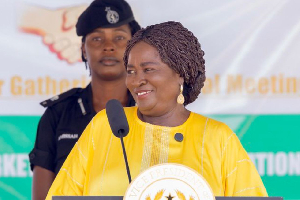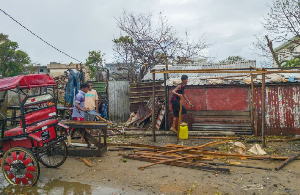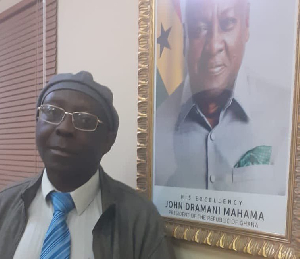Regional News of Tuesday, 15 March 2016
Source: GNA
Ghana to put Gender Agenda on UN platform
Ghana is set to project the country’s gender agenda at the United Nations Commission on the Status of Women (CSW60) slated for March 14 to March 25 at the UN Headquarters, New York.
Nana Oye Lithur, Minister of Gender, Children and Social Protection is leading a delegation including Members of Parliament, Gender Advocates, Gender Technocrats, and other gender stakeholders.
The priority theme for CSW60 is: “Women’s empowerment and its link to sustainable development”.
Governments and gender advocates will use the platform to focus on creating a conducive environment for gender-responsive implementation of the 2030 Agenda for Sustainable Development, through actions to ensure enabling laws and policies, solid institutional infrastructures, adequate financial resources, strengthening of participation mechanisms, and investment in sex-disaggregated data, to guide national action.
Nana Oye Lithur told the Ghana News Agency in an interview in New York that the CSW60 would be used to outline robust set of actions for translating ambitious development roadmap into reality for women and girls.
She said following a milestone year in international development in which world leaders endorsed the 2030 Agenda for Sustainable Development, the 60th Session of the CSW60 will focus firmly on implementation of the ambitious agreement.
The Sustainable Development Goals (SDGs) adopted by UN Member States in September 2015 are a universal roadmap for people and planet, addressing the key challenges of the 21st century, such as poverty, inequality and climate change.
Nana Oye Lithur noted that gender equality and the empowerment of all women and girls was a goal in itself, and recognized as a central means to achieving the SDGs. Success depended on rigorous implementation.
Phumzile Mlambo-Ngcuka, UN Women Executive Director, noted that: “CSW60 gathering of so many of the key partners in the implementation of Agenda 2030 makes this a crucial opportunity to combine our strengths and align decisively around the central issues for action”.
She explained that the Commission was the single largest forum for member states and other stakeholders to commit to new actions for advancement of women and their empowerment.
“This year’s CSW60 is the first after the adoption of the new 2030 Agenda for Sustainable Development. The session thus will build on the momentum garnered in September 2015 when, in conjunction with the adoption of the 2030 Agenda for Sustainable Development, more than 90 governments answered UN Women’s call for action to “Step It Up for Gender Equity”.
She recounted that World leaders pledged measurable actions to tackle structural barriers and remaining challenges to the achievement of gender equality in their countries.
Civil society and businesses leaders complemented these pledges committing to combat stereotypes and shift practices towards fostering greater equality and opportunity.
Research underlines the benefit of women’s empowerment and gender equality for societies everywhere: for instance, if women played an identical role to men in labour markets, as much as USD 28 trillion could be added to global annual GDP by 2025.
The UN Executive Director noted that when women were at the peace tables, their participation increases the probability of a peace agreement lasting at least two years by 20 per cent, and 35 per cent over 15 years.
“And a child born to a mother who can read is 50 per cent more likely to survive. Yet, global reviews undertaken in 2015, during the 20 years’ commemoration of the historic Beijing Conference, revealed that while there has been progress on women’s rights and gender equality, it has not been enough.
“Today, only one in five parliamentarians is a woman and women continue to earn less, have fewer assets and bear the burden of unpaid work and care.
“Violence against women continues to affect one in three women, making it one of the most widespread human rights violations. The Commission will evaluate progress in the implementation of its agreed conclusions of 2013, on ending violence against women and girls, a pandemic that also comes with enormous economic co sts to society”.












